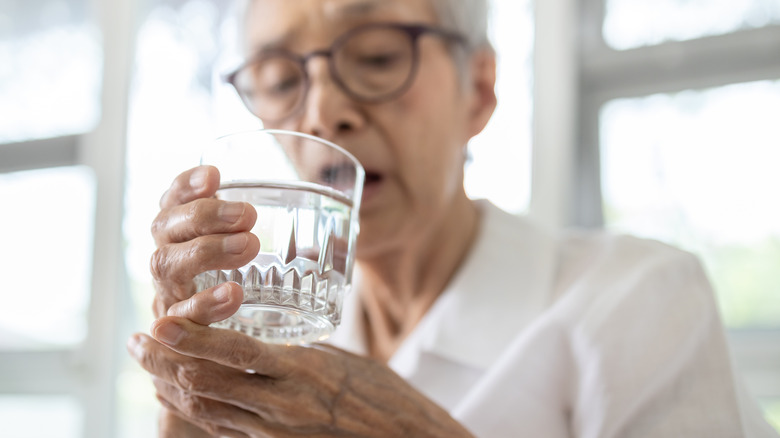New Research Finds That Zinc May Have A Link In Protecting Against Parkinson's Disease
Parkinson's disease is a degenerative disorder of the central nervous system that affects nerve cells in the brain. Symptoms include tremors, rigidity, slowness of movement, and problems with balance. While there is no cure for Parkinson's disease, treatments are available to help manage the symptoms (via the National Health Service). Now, new research suggests that zinc may play a role in protecting against the disease.
The buildup of a protein called alpha-synuclein (AS) is one of the primary causes of Parkinson's disease. Lewy bodies develop in the brain as a result of the AS congregation, which may result in neuronal dysfunction. According to recent findings published in Science Direct, zinc ions may be able to prevent the accumulation of alpha-synuclein under certain conditions. This finding might shed more light on the mechanisms involved in the onset of Parkinson's disease, however, scientists agree that further study is needed to find ways to use this knowledge to help prevent the development of Parkinson's disease in patients.
What is Parkinson's disease?
Parkinson's disease is a degenerative neurological disorder that affects a person's ability to control their body movements, according to Mayo Clinic. It is caused by the death of certain nerve cells in the brain that produce the chemical dopamine. Parkinson's typically begins to develop in people over the age of 50, and the risk of developing it increases with age. Symptoms of Parkinson's include tremor, rigidity, slowness of movement, and difficulties with balance and coordination. The exact cause of Parkinson's is unknown, but it is thought to be a combination of genetic and environmental factors. There is no cure for Parkinson's, but there are treatments available that can help manage symptoms and improve quality of life.
If you have Parkinson's disease, it is important to work with your healthcare team to develop a treatment plan that is right for you. Treatment options include medication, surgery, and lifestyle changes (via Parkinson's Foundation). Medications can help control symptoms, but they do not stop the progression of the disease. Surgery may be an option for some people, but it is not a cure. Lifestyle changes such as exercise, diet, and social support can also help manage symptoms and improve quality of life.


